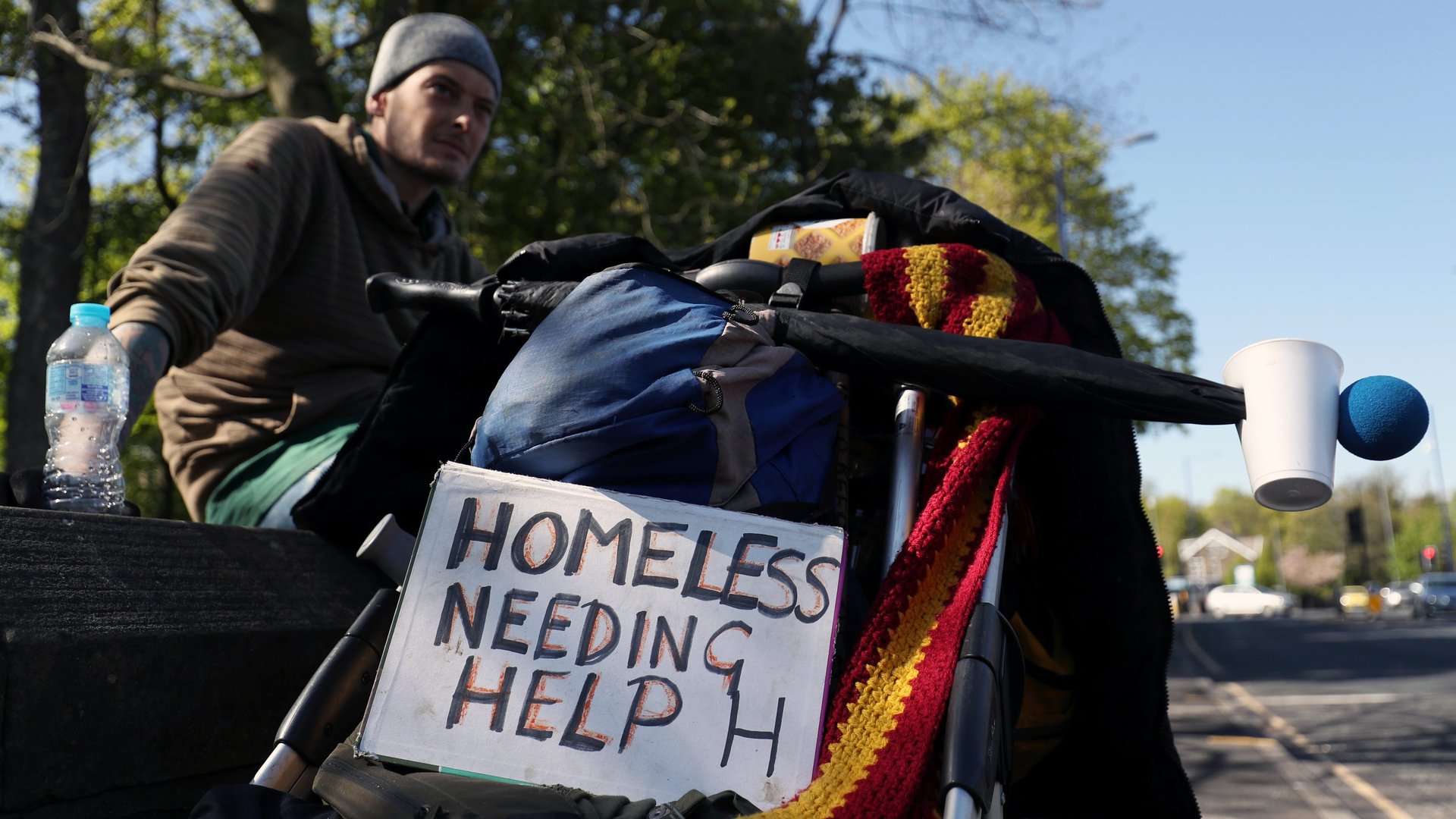During the pandemic, nearly half of all US crowdfunding campaigns raised $0
In the span of seven months, between January and August 2020, more than 175,000 Covid-19-related crowdfunding campaigns were posted from the US on GoFundMe, the world’s largest crowdfunding platform for social causes.


In the span of seven months, between January and August 2020, more than 175,000 Covid-19-related crowdfunding campaigns were posted from the US on GoFundMe, the world’s largest crowdfunding platform for social causes.
Among those campaigns, 43% raised no money at all—a big change from pre-pandemic times, when only about 3.5% of campaigns produced no donations, according to a study to be published in the academic journal Social Science and Medicine in August.
Although it’s hard to say why any individual campaign might fail to get traction, researchers found two elements were typically linked to more successful campaigns: They originated in areas with higher income, and they were launched by people with higher education levels.
In the past few years, crowdfunding has become a lifeline for those struggling with unexpected emergencies and financial hardship, particularly connected to medical expenses. This is especially true in the US, where a lack of universal health coverage and high medical bills can push families to the brink of bankruptcy. Although exact data on the number and kind of crowdfunding campaigns posted every year are not available, the majority of appeals are made for people dealing with healthcare expenses.
During the Covid-19 pandemic, medical bills are only part of the problem. Although treatment was often free in the US, other expenses related to Covid-19, such as loss of income and the need for protective equipment and childcare, forced many families to ask for help online.
More campaigns for basic needs
To conduct the study, the authors used the tag “Covid-19” to search through up to 1,000 campaigns for every American zip code—the most extensive such research conducted so far—and identified about 175,000 campaigns related to Covid-19.
The researchers are careful to note that making direct comparisons between campaigns prior to Covid-19 and during the pandemic is hard, given the exceptional circumstances of the past year and a half, says Mark Igra, a researcher at the University of Washington and the lead author of the paper. Still, the most popular keywords associated to these campaigns suggest many of them were addressing immediate needs following Covid-19’s impact, rather than long-term care, as was more common in medical fundraising campaigns prior to the pandemic.
“My gut sense is that there’s been a lot more campaigns for basic needs,” says Nora Kenworthy, a professor of public health at the University of Washington Bothell who has done extensive research in crowdfunding and is a co-author of the paper.
A measure of inequality
On crowdfunding platforms, as in life, money begets money. Not only did nearly half of all campaigns raise no money, but the top 1% of campaigns in money raised gathered about 25% of all the funding (both in terms of number of donations and money). The researchers found that top campaigns raised money for the employees of Michelin-starred restaurant Le Bernadin in New York, and for golf caddies and employees of exclusive clubs. In those cases, it was mostly corporate executives or celebrities who started the campaigns.
Often, for-profit companies started or benefited from the campaigns, and were helped by GoFundMe highlighting the campaigns on their homepage or promoting them through their channels. GoFundMe even helped some campaigns for small businesses through matching donations as a form of support during Covid-19.
GoFundMe supports specific campaigns as a way to help give exposure to causes that might otherwise get overlooked, according to a spokesperson. Between March and August 2020, GoFundMe was used to raise $625 million for Covid-19 support, the company said.
The measure of inequality in the distribution of funding is striking. On the Gini coefficient, an index to measure the equality of wealth distribution where 0 is perfectly equal and 1.0 the most unequal, the Covid-19 campaigns registered as 0.88.
There is no reliable data on the demographics of those who start campaigns or benefit from them. However, campaigns launched in highly educated, wealthy counties did better. Higher levels of income and education were positively related to the likelihood of starting a campaign, too.
This suggests that on top of being unable to reach potential donors with bigger wallets, those living in lower-income areas might be facing barriers such as poor internet connections, or lack of familiarity with crowdfunding platforms.
GoFundMe is aware of this. In February, the company’s CEO, Tim Cadogan, published an op-ed in USA Today arguing the rise in crowdfunding campaigns for basic needs is a sign Americans don’t have enough government support to face emergencies. “The surge in these types of fundraisers is a direct result of government programs coming up short,” he wrote.